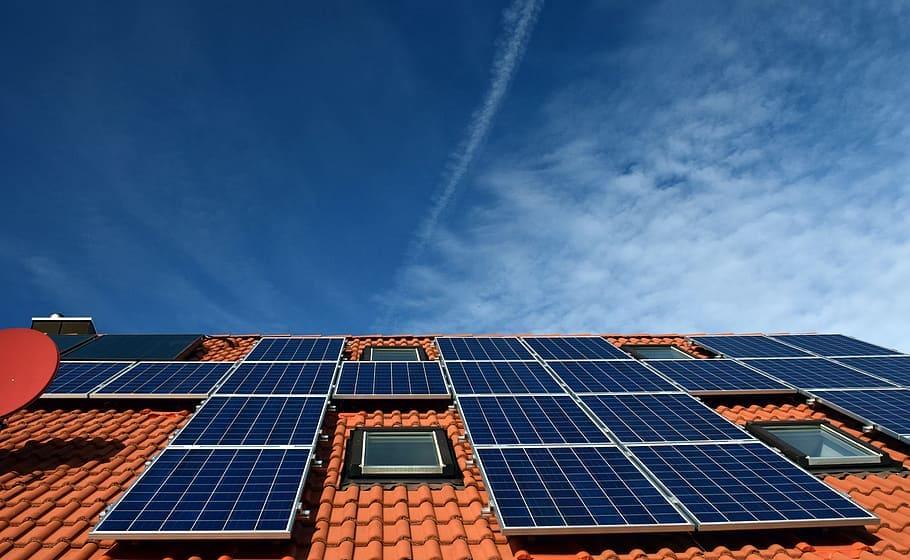How long do solar panels last, what is the life expectancy?
How long do solar panels last and what is the life expectancy? It is one of the most common questions people ask. Solar panels maintenance is minimal due to the lack of moving parts, meaning they are much less likely to break. All over the world, people use different sources of electricity. Solar panels are becoming increasingly popular globally as they do not produce any emissions and it is environmentally friendly therefore, solar energy is one of the biggest renewable energy in the world. With this energy, the sun is the most powerful source. Ultimate Energy Australia is a most experienced energy solution provider, later in the article, you will get to know how long solar panels last and also how you can keep them from being damaged.

How long do solar panels last?
The electricity demand is increasing day by day. Solar panels are the cheapest source of electricity. The latest solar panel model on the market has a lifespan of 25 to 30 years and warranties that will keep them protected for at least half of that time. Warranties also act to guarantee the performance level of the solar panels. Ultimate Energy will guarantee that performance will not drop below 80% before the warranty ends. Solar panels are made from silicon and can last at least 25 years if properly maintained.
Different types of solar panels
Solar panels are still a considerable investment in Australia. Almost 3 million Australian households have rooftop solar installations and Ultimate Energy is working on many more projects. The solar panel degradation rate of roughly 0.5% per last few years has grown due to the technology falling cost and rising electricity bills. Most Australian households use solar electricity. Solar panels would be capable of producing 90% of the electricity when new. In Australia, the solar panel lifespan will be between 25-30 years, depending on the manufacturer.
- Monocrystalline solar modules: These types of solar panels take less space, however they can be expensive.
- Polycrystalline solar modules: They need more space and are slightly less efficient. If you take good care of these panels, the life expectancy is around 50 years after being installed.
Average lifespan of solar panels?
Solar panels generating solar power don’t last forever. The average industry standard life span is about 25 to 30 years. The longevity of solar panels is based on the way they are put together and made. Solar panels installed as early as 1980 are still working. Many solar panels manufacturers companies back their products with performance guarantees in their warranties. Most factors contribute longevity of your system which include installation methods, products quality, battery life and climate conditions.
How long do solar panels last on a rooftop?
The installment of solar panels (photovoltaic, PV) on roofs is becoming popular nowadays. The average lifespan of solar panels is about 25 years. However, it doesn’t mean the panels on your roof will stop working or stop producing electricity. It just means that after that point, the amount of electricity production will be decreasing. In general, solar panels are extremely durable and usable for a very long time.
Do solar panels work on cloudy days or in bad weather?
Yes, solar panels can work on cloudy days, at night, or in bad weather. The amount of electricity production is less than in sunlight. On cloudy days amount of energy production is about 10% of what they usually do in the daytime with sunlight. The important thing about solar panels is that if the weather is very hot, then the capacity of producing electricity is also dropping 10-30%. However, solar panels work better at cooler temperature. The reason is, fog and clouds reduce the effect of direct sunlight, therefore heat can stay within the safe or normal temperature.
How long do solar panels last on house rooftop?
The solar panels are easy maintenance for the home owner. They do not require large area for working. Solar energy systems don’t usually have moving or destructive parts. There is no need for regular cleaning of panels on the house rooftop unless your area is highly polluted. The general estimate for the life span of the solar panels on a house rooftop depends upon location, sunlight hours, and type of solar panels. The user needs to inspect the solar power system or its performance from time to time.
How can you make your solar panels last longer?
There are ways to make your solar panel last longer:
- Keep your panels clear from damaging or harsh materials.
- Regularly check and monitor the performance of the panel.
- Best to team up with a trusted solar provider.
- Check the warranty.
- Replace inverters every 10 Years.
- Maintain and replace batteries.
- Keep the panels clear of debris and other materials that may cause damage.
- Work with a Trustworthy Solar Panel provider.
What happens to solar panels at the end of life?
When the solar panels are at the end of their life, their working speed slows down the amount of electricity produced is less than before. But at Ultimate Energy Australia we provide exceptional after Sales Customer Care in which we can guide you on how to improve your solar panels life.
